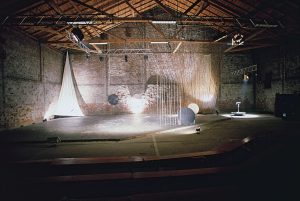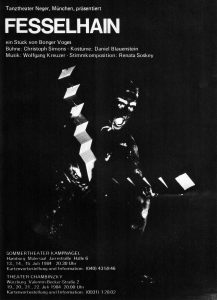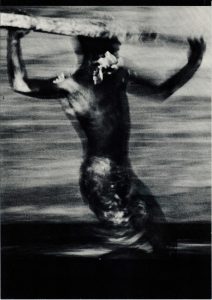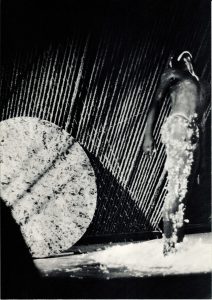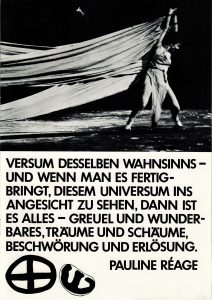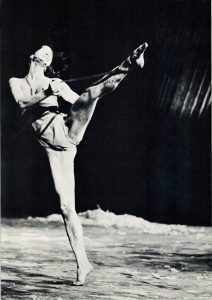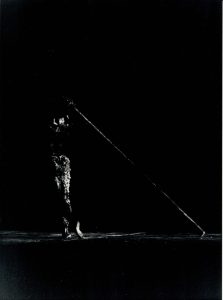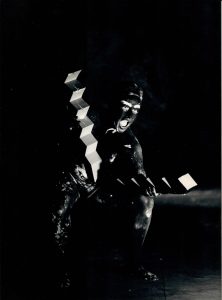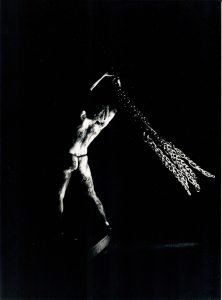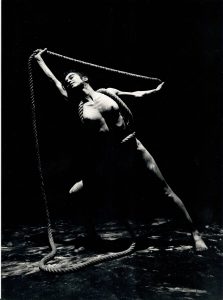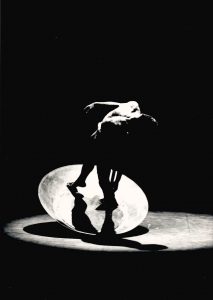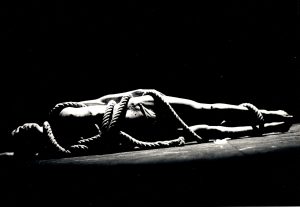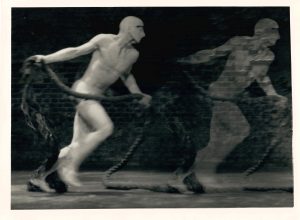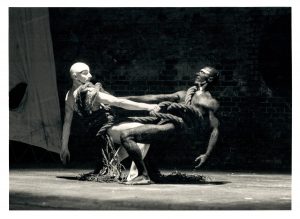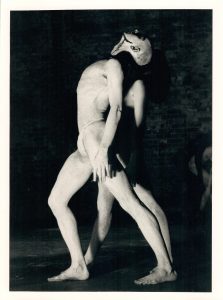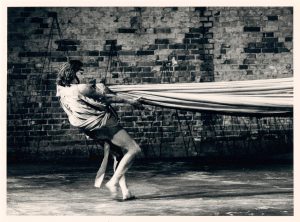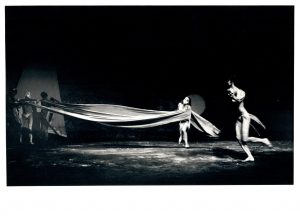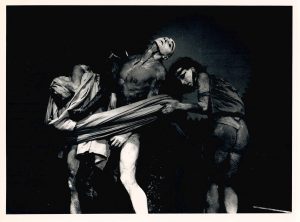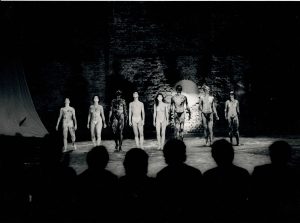With Fesselhain, for the first time, the pictorial power, the archaic language, the inspirations that more or less run through Voge's work fully unfold.
Fesselhain (bondage grove)
Inspired by the eponymous story from Tacitus' Germania, which describes how the "Semnones" celebrate the origin of their tribe, Voges tells an archaic story of devotion, heroism, sacrifice, evolution, community, and powerful mythical bonding rituals.
"The Semnones consider themselves the oldest and most distinguished Suebi. The belief in their great age is confirmed by a religious custom. At a certain time all tribes of the same blood, represented by emissaries, meet in a grove, which is sanctified by the omens seen by the fathers and by ancient shyness. There they initiate the gruesome celebration of their crude custom with a public human sacrifice. The grove is also revered in other ways: no one enters it unless he is bound to show his submissiveness and the power of the deity. If someone falls down, he is not allowed to be picked up or to get up himself; he rolls out on the ground. All in all, the cult custom is based on the belief that the tribe derives from there, that the all-controlling deity dwells there, to whom everything else is subjected, obedient."
from Tacitus Germania
"What the outer violence of the sacrificial act revealed was the inner violence of being, seen in the light of the blood flowing out and the organs gushing forth. It is the very essence of the sacrifice to bring life and death into harmony: to death it gives the aspect of swelling life, to life the heaviness, the staggering and the becoming open to death.
It is life mixed with death, but at the same moment death is in it a sign of life, opening into the infinite."
Georges Bataille
"Not holding back debauchery ... To truly expand and multiply one's desires, one must want to impose limits on it."
Marquis de Sade
"But once the fantastic and the prolixity had been accounted for, which mitigates the obsessions, everything overlaps, experienced or dreamed, everything proves to be commonly shared in the universe of the same madness - and if one manages to face this universe, then everything - abominations and marvels, dreams and dreams, conjuration and redemption."
Pauline Reage
"Do you know how to ask,
you know how to sacrifice,
you know how to send,
do you know how to slaughter?"
Germanic magic sacrifice spell
Fesselhain - a history of initiation - a history of change.
Human evolution story in surreal images of surrender. Surrender as surrender, sacrifice, dissolution, boundlessness, as the moment necessary for any overcoming, for any change. Surrender - when you hand yourself over to something without the certainty of knowing exactly what will happen to you. When you do not impose barriers on yourself or surrender to imposed barriers - have confidence in the situation that another gives. Fesselhain is meant to describe a way to get there."
Stage/Objects: Christoph Simons
Costumes: Daniel Blauenstein
Music: Wolfgang Kreuzer
Voice composition: Renata Soskey
Light: Peter Junghans, Philip Gassmann
Assistance: Claudia Weiss
Production/Choreography: Bonger Voges
More about Fesselhain under: Press
Production: Bonger Voges
Choreography: Bonger Voges and Daniel Blauenstein
Video production and camera: Albert Frische
with the kind support of actors & arts, Munich
